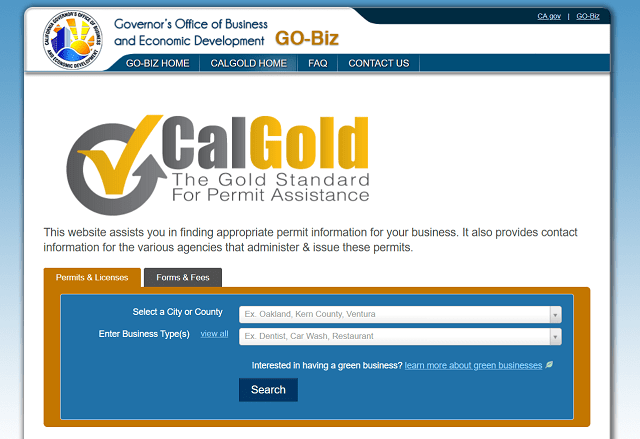If you plan to launch a business in California, forming an LLC is a must. Whether you're dreaming of launching that beachside business in San Diego or a tech startup in Silicon Valley, I've got you covered with everything you need to know about starting an LLC in California in 2025.
To start an LLC in California, you need to:
- Choose a name
- Appoint a registered agent
- File articles of incorporation
- Create an operating agreement
- Get an EIN
The cost to starting an LLC in California starts from $70, this varies depending if you use certain services to help you out or go for a more DIY approach.
How to start an LLC in California in 5 steps
Starting an LLC in California might seem overwhelming at first glance. But I promise it's not as complicated as it seems to start a business. Let's break down this process into bite-sized, manageable steps, shall we?
1. Choose a name for your LLC
Before you can do anything else, you need to decide what to call your business.
This isn't just about picking something catchy – California has specific rules about how to choose a name for your LLC, such as:
- Your name must include "Limited Liability Company," "LLC," or "L.L.C." (You can also abbreviate "Limited" to "Ltd." and "Company" to "Co.")
- Your chosen name can't already be in use by another business in California
- It can't include words that would make people think you're a government agency (like "FBI" or "Treasury")
- Some words like "bank," "insurance," and "trust" require additional permissions
To check if your dream name is available, you can start by visiting the California Secretary of State's business search tool.
Pro tip: Have a few backup options for your business name at the ready.
There are a lot of business names that have already been chosen. And I know how disappointing it can be to fall in love with a name only to discover it's taken!

Get your business domain name
Once you've locked down your LLC name, don't wait around – get a domain name right away! Even if you're not planning to build a website immediately, securing your domain prevents someone else from snagging it.
Your domain name doesn't have to match your LLC name exactly, but keeping them similar helps with brand consistency. For example, if your LLC is "Sunset Surfboards, LLC," you might want to register sunsetsurfboards.com.
Keep in mind your domain is basically your business's address on the internet. It's where customers will find you, so make it memorable and easy to spell.
Get a DBA
"DBA" stands for "doing business as." It’s what allows you to operate under a name different from your LLC name. In California, this is also called a "fictitious business name."
Let’s say your LLC is formally named "Johnson Family Enterprises, LLC," but your actual cafe is called "Sunny Side Up."
A DBA lets you legally operate and advertise your business as "Sunny Side Up" while maintaining your LLC protection.
To get a DBA in California, you'll need to file with the county clerk's office where your business is located.
Requirements vary by county, but these are the typical steps you’ll follow:
- File a Fictitious Business Name Statement
- Pay a filing fee (~ $10-$100)
- Publish your DBA in a local newspaper for four consecutive weeks (yes, really!)
Learn more about what is a DBA here.
2. Appoint a registered agent
Every California LLC needs a registered agent – the person or company who accepts legal documents on behalf of your business. They’re your business's official point of contact with the state.
Your registered agent must:
- Have a physical address in California (not a P.O. box)
- Be available at that address during normal business hours
- Be at least 18 years old
You can be your own registered agent if you live in California, you can designate another person, or hire a professional registered agent service. If you're your own agent, your personal address becomes public record, and you must be available at that address during business hours.
This is why some business owners choose to use a registered agent service—the cost is $100-$300 annually, but it gives them privacy and peace of mind. Plus, you won't miss important legal notifications if you're traveling or busy with meetings!
3. File articles of organization – Form LLC-1

Now we're getting to the “official stuff”—filing your Articles of Organization with the California Secretary of State using Form LLC-1. This document formally creates your LLC.
The form is relatively straightforward, asking basic information like:
- Your LLC's name
- Business address
- Registered agent information
- Management structure (member-managed or manager-managed)
- Name and address of the person filing the form
The filing fee is $70, and you can submit your Articles of Organization one of three ways:
- Online through the California Secretary of State's website
- By mail
- In person at the Sacramento office
Processing times vary depending on how busy the Secretary of State's office is, but typically takes about 3-5 business days for online filings and 5-7 business days for mail-in filings.
4. Create an operating agreement
Although California doesn't require you to file an operating agreement with the state, having one is legally required.
An operating agreement outlines how your LLC will be run, including things like:
- Ownership percentages for each member
- How profits and losses will be distributed
- Voting rights and decision-making processes
- Rules for adding or removing members
- What happens if a member wants to leave or passes away
- Procedures for dissolving the LLC
Even if you're a single-member LLC, an operating agreement is crucial because it establishes your business as a separate entity from yourself (strengthening your limited liability protection).
You can create an operating agreement yourself using templates available online, or have an attorney draft one for you. Either way, make sure all members sign it and keep it with your important business documents.
5. Get an EIN
An EIN (Employer Identification Number) is like a Social Security number for your business. It's a unique nine-digit number assigned by the IRS that identifies your business for tax purposes.
You'll need an EIN to do things like:
- Open a business bank account
- Hire employees
- File business taxes
- Apply for business licenses
- Establish business credit
For more information on Employer Identification Numbers, check the State of California Department of Industrial Relations website.
How long does it take to get an EIN?
If you apply online through the IRS website, you'll receive your EIN immediately after completing the application.
If you prefer to apply by mail using Form SS-4, it could take about 4-5 weeks to receive your EIN.
How much does an EIN cost?
An EIN is free. The IRS doesn't charge anything for assigning an EIN to your business.
However, be mindful of third-party services offering to get you an EIN for a fee. Don’t fall for this! You can do it yourself at no cost.
How much does it cost to start and run an LLC in California
There are other costs involved with running an LLC in California, so let’s go over some of those costs below.
One-time startup costs
- Articles of Organization filing fee: $70
- Initial Statement of Information (Form LLC-12): $20 (due within 90 days of formation)
- Operating Agreement: $0-$200 (free if you create it yourself, or you might pay an attorney)
- Name reservation fee (this one’s optional): $10 to reserve your name before filing
Ongoing annual expenses
- Annual franchise tax: $800 (yes, you read that right – this is the minimum tax you'll pay EVERY year just for the privilege of having an LLC in California. Ouch!)
- Statement of Information (Form LLC-12): $20 every two years
- Annual LLC fee: This is based on your LLC's income if it exceeds $250,000. The costs range from $900-$11,790 per year.
Other potential costs
Depending on your business, and how you choose to go about things, additional costs might include:
- Business licenses and permits: Varies by industry and location
- Registered agent service: $100-$300 annually if you don't act as your own agent
- DBA filing: $25-$60 depending on your county
What happens after your LLC is up and running
Congratulations on forming your California LLC! Now what?
Well, now that your business entity is officially established, there are a few important steps to take to ensure your business operates smoothly and remains compliant with state regulations.
Open a business bank account
Opening a dedicated business bank account is a crucial step for your new LLC.
Here's what you need to know:
- Required documents: Bring your EIN confirmation letter, LLC Articles of Organization, operating agreement, and personal identification.
- Research options: Compare business checking accounts from different banks to find one with low fees and features that match your needs.
- Choose the right account: Consider your transaction volume, minimum balance requirements, and whether you need merchant services or mobile banking.
- Add authorized signers: Decide which members or managers will have account access and signing authority.
Maintaining a separate business bank account is essential for preserving your limited liability protection. Mixing personal and business finances (called "commingling funds") can potentially pierce your LLC's liability shield, putting your personal assets at risk.
A separate account also simplifies accounting, tax preparation. It demonstrates business legitimacy to clients and vendors as well.
File for permits and required business licenses

California doesn't have a single, comprehensive business license that applies to all businesses. Instead, licensing requirements depend on your industry type, business activities, physical location, and number of employees.
To determine which permits and licenses your LLC needs you can take these steps:
- Visit the CalGold website to search for requirements based on your business type and location.
- Check with your city and county government offices, as many local jurisdictions require business licenses.
- Research industry-specific licenses through the California Department of Consumer Affairs.
- For regulated industries (like food service, childcare, or construction), contact the appropriate state regulatory board.
Keep in mind that operating without required licenses can result in penalties, fines, or even forced closure of your business. Most permits and licenses need to be renewed regularly, so keep track of expiration dates to maintain compliance. I personally use my Google Calendar to send me reminders of important dates regarding my business stuff.
File California Statement of Information – Form LLC-12
The Statement of Information (Form LLC-12) is a mandatory filing that updates the state on your LLC's basic information.
You must file this form:
- Within 90 days of forming your LLC
- Every 2 years thereafter during your filing period
- When there are changes to your LLC's information
The form requires basic details about your LLC, including:
- LLC name and California Secretary of State file number
- Business addresses
- Names and addresses of managers or members
- Type of business
You can file online through the Secretary of State's website (fastest method), by mail, or in person.
The filing fee is $20, and the process seems pretty straightforward. Again, set a reminder for yourself so you don't miss this important deadline. Failure to file can result in penalties or even the suspension of your LLC. No one wants that!
Things to know about California LLCs

Running an LLC in California involves several unique considerations that business owners should be aware of. Understanding the state's specific requirements for taxes, insurance, and franchise fees will help keep your business compliant and avoid unexpected penalties.
File taxes for a California LLC
California LLCs face several tax obligations that require attention.
Here are just a few to be aware of:
- Pass-through taxation: Most LLCs are taxed as pass-through entities, meaning profits pass through to members who report this income on their personal tax returns.
- Annual tax filings: Your LLC must file Form 568 (Limited Liability Company Return of Income) with the California Franchise Tax Board, regardless of whether it generated income.
- Sales tax: If your LLC sells physical products, you must register with the California Department of Tax and Fee Administration (CDTFA) to collect and remit sales tax.
- Employment taxes: LLCs with employees must register with the Employment Development Department (EDD) to handle payroll taxes, unemployment insurance, and disability insurance.
- Local taxes: Many cities and counties in California impose additional business taxes.
Make sure to consult with a tax professional familiar with California's tax laws to ensure complete compliance.
California LLC insurance
While California doesn't mandate comprehensive business insurance for all LLCs, certain coverages are required or highly recommended.
Some policies to consider include:
- Workers' compensation insurance: Mandatory if your LLC has employees (even just one)
- Commercial auto insurance: Required for any company vehicles
- Professional liability insurance: Essential for service-based businesses to protect against claims of errors or negligence
- General liability insurance: Highly recommended to protect against common business risks like customer injuries on your premises
- Cyber liability insurance: Important for businesses that handle sensitive customer data (and might be required if you work in financial services)
- Business property insurance: Protects your physical assets like equipment, inventory, and office space
Insurance needs vary by industry, so it might be a good idea to consult with an insurance broker who specializes in business coverage to ensure your LLC has appropriate protection.
California LLC franchise tax
The California franchise tax is one of the most significant ongoing expenses for California LLCs.
Here’s what you need to know:
- Annual minimum payment: All LLCs must pay at least $800 per year to the California Franchise Tax Board, regardless of whether your business earns a profit or conducts any business that year.
- Due date: For new LLCs, the first payment is due by the 15th day of the 4th month after formation. For existing LLCs, payment is due by April 15th each year.
- Additional LLC fee: If your LLC's total annual income exceeds $250,000, you'll pay an additional graduated fee ranging from $900 to $11,790 based on your income level.
You can pay your fees online through the Franchise Tax Board's website or by mail using Form 3522 (LLC Tax Voucher).
Failure to pay the franchise tax on time can result in penalties, interest charges, and eventually the suspension of your LLC's good standing with the state.
FAQ
How much does it cost to register an LLC in California?
The basic cost to register an LLC in California is $90, which includes:
- $70 for filing the Articles of Organization with the California Secretary of State
- $20 for the initial Statement of Information (Form LLC-12) that must be filed within 90 days of formation
Additional costs may include:
- $10 for a name reservation (optional)
- ~ $50 for a fictitious business name filing (if applicable)
- $100-$300 for a registered agent service (if you don't act as your own)
- Legal fees if you hire an attorney to assist with formation
Remember that these are just the formation costs. California LLCs also face the $800 annual franchise tax and potentially other ongoing expenses.
Do you have to pay the $800 California LLC fee the first year?
Yes, all California LLCs must pay the $800 annual franchise tax, even in their first year of operation. For new LLCs, this payment is due by the 15th day of the 4th month after your LLC's formation.
So, if you form your LLC in January, your first $800 payment would be due by April 15th of the same year. If you form in October, your payment would be due by January 15th of the following year.
The only exception is if your LLC existed for 15 days or fewer in a tax year AND conducted no business during that time. In this rare case, you might be exempt from the first year's payment.
How long does it take for an LLC to be approved in California?
Processing times for California LLC registrations vary depending on the filing method and current workload at the Secretary of State's office.
- Online filings typically processed within 3-5 business days
- Mail filings usually take 5-7 business days after receipt
- In-person filings may be processed the same day or next business day
During busy periods (especially January through March), processing times can extend to 10-15 business days or longer.
If you need your LLC approved more quickly, the California Secretary of State offers expedited processing for additional fees. For 24-hour service expect to pay upwards of $350. This jumps to $750 for same-day service and requests must be submitted before 9:30 a.m.!
Once processed, you'll receive a file-stamped copy of your Articles of Organization confirming your LLC's official formation.
Can you register an LLC on your own?
Absolutely! Many entrepreneurs successfully register their California LLCs without professional assistance. The process is straightforward enough for most folks. If you're willing to read instructions carefully and complete the required forms, you can certainly do it yourself.
The California Secretary of State provides clear instructions for completing the Articles of Organization and other required forms. You can file online through their website or submit paper forms by mail or in person.
That said, if your situation is complex (i.e. multiple members, special ownership arrangements, or industry-specific concerns), or if you simply want peace of mind, consulting with an attorney or using a business formation service might be worth the additional cost.
You’re ready to start an LLC in California
Starting a California LLC doesn't have to be complicated! With these steps and tips in your back pocket, you're all set to bring your business dreams to life in 2025. Here's to your entrepreneurial journey in the Golden State—may it be prosperous and (mostly) paperwork-free!
Disclaimer: This content should not be construed as legal or financial advice. Always consult an attorney or financial advisor regarding your specific legal or financial situation.






